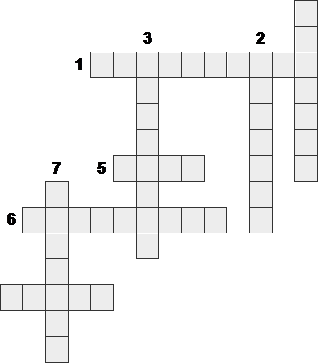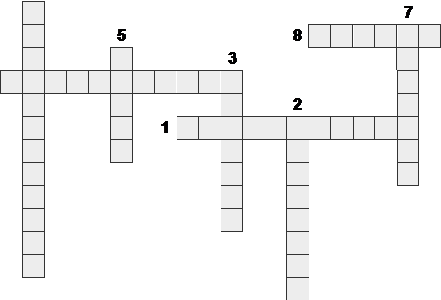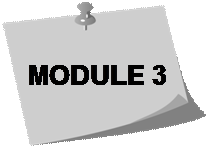

Общие условия выбора системы дренажа: Система дренажа выбирается в зависимости от характера защищаемого...

Семя – орган полового размножения и расселения растений: наружи у семян имеется плотный покров – кожура...

Общие условия выбора системы дренажа: Система дренажа выбирается в зависимости от характера защищаемого...

Семя – орган полового размножения и расселения растений: наружи у семян имеется плотный покров – кожура...
Топ:
Организация стока поверхностных вод: Наибольшее количество влаги на земном шаре испаряется с поверхности морей и океанов...
Техника безопасности при работе на пароконвектомате: К обслуживанию пароконвектомата допускаются лица, прошедшие технический минимум по эксплуатации оборудования...
История развития методов оптимизации: теорема Куна-Таккера, метод Лагранжа, роль выпуклости в оптимизации...
Интересное:
Как мы говорим и как мы слушаем: общение можно сравнить с огромным зонтиком, под которым скрыто все...
Принципы управления денежными потоками: одним из методов контроля за состоянием денежной наличности является...
Инженерная защита территорий, зданий и сооружений от опасных геологических процессов: Изучение оползневых явлений, оценка устойчивости склонов и проектирование противооползневых сооружений — актуальнейшие задачи, стоящие перед отечественными...
Дисциплины:
|
из
5.00
|
Заказать работу |
Содержание книги
Поиск на нашем сайте
|
|
|
|
Unit 6 COMMUNICATION
Vocabulary
| one-way communication | одностороннее взаимодействие |
| two-way communication | двустороннее взаимодействие |
| mass media | средства массовой информации |
| source | источник, причина |
| to distort | искажать, деформировать |
| message | сообщение, информация |
| channel | канал. источник, путь передачи |
| receiver | получатель, реципиент |
| conversation | неформальные переговоры, обсуждение, со- беседование |
| feedback | отзыв, ответная реакция, обратная связь |
| survey | опрос, анкетирование, обзор |
| analyst | аналитик, комментатор |
| assessment | оценка, определение стоимости, мнение |
| blog | сетевой дневник, лента сообщений |
| to require | требовать, приказывать, нуждаться в ч-л |
| to separate | отделять, разделять |
 TEST-PAPER
TEST-PAPER
E x erci se 1
Fill in the blanks with the words from the box
| one-way communication | two-way communication | assessment | blog |
| source | survey | message | to require |
1. The student conducted a brief of the most important books on this problem.
2. She that everyone should attend the meeting.
3. We use for sending a message that does not need a respond.
4. When Barbieux started his , he simply hoped to communicate with a few people.
5. You may send us a respond as it is .
6. She made a careful of the situation in this area.
7. It is better to make inquiries at the original .
8. We received that we were to return at once.
E x erci se 2
Translate the following sentences from English into Russian
1. You can use the mass media to refer to the various ways, especially television, ra- dio, newspapers, and magazines, by which information and news is given to large num- bers of people.
 |
2. If you distort a statement, fact, or idea, you report or represent it in an untrue way.
 |
3. Не turned his abilities into that channel in which he was most likely to excel.
 |
4. Since each message contains the address of the handler, active messages only
work when senders and receivers trust each other completely.
 |
5. If you have a conversation with someone, you talk with them, usually in an informal
situation.
 |
6. If you get feedback on your work or progress, someone tells you how well or badly you are doing, and how you could improve. If you get good feedback you have worked or performed well.
|
|
 |
7. When someone is suffering from an inner conflict which he is unable to resolve
alone, he brings his trouble to the analyst and begs for his help.
 |
8. Particularly important is the need to separate what we do from any rewards it may
bring.
 |
 E x erci se 3
E x erci se 3
 Find the answers to the crossword
Find the answers to the crossword
| 7 | |||||||||||
|
6 | 2 | ||||||||||
|
| 3 | ||||||||||
| 1 |
| ||||||||||
|
|
5 |
| |||||||||
|
| |||||||||||

|
| ||||||||||
|
4 |
|
8 | |||||||||
|
|
| ||||||||||
|
|
| ||||||||||
|
| |||||||||||
VERTICALLY:
2. A response that a receiver gives to a source of a message.
3. A consideration of someone or something and a judgement about them.
7. An act of asking people questions or having them fill out questionnaires to gather information.
8. A website containing a diary or journal on a particular subject.
HORIZONTALLY:
1. A piece of information that is transferred from one person or group to another.
4. A method that is used to transfer information from one person or group to another.
5. A person or place where information comes from.
6. A person whose job is to analyze a subject and give opinions about it.
Unit 7 PERSUASION
Vocabulary
| to persuade | убеждать, уговаривать |
| persuasion | убеждение (процесс), обоснованность |
| opinion | мнение |
| favorable | благоприятный |
| to conserve | сберегать, сохранять |
| to crystallize | формулировать, облекать в определенную форму |
| hostile | враждебный, неприязненный |
| emotional appeal | эмоциональный призыв или реклама, ориентиро- ванная на эмоции |
| latent | скрытный, непроявившийся |
| to neutralize | уравновешивать, нейтрализовать |
| harmful | вредный, губительный |
| campaign | кампания, операция |
| accident | событие, происшествие |
| to overcome | преодолевать, подавлять |
| to strengthen | усиливать |
 TEST-PAPER
TEST-PAPER
E x erci se 1
Fill in the blanks with the words from the box
| to persuade | rhetoric | publicist | latent |
| favorable | persuasive | negative | persuasion |
1. He failed me to change my opinion.
2. They made us accept their point of view due to their arguments.
3. is the act of persuading someone to do something or believe that something is true.
4. The latest article being actual has received highly reviews.
|
|
5. As the customer denied the presented evidence, his attitude was diffi- cult to overcome.
6. To influence one‘s opponents they used language but failed as they were lack of sincerity.
7. is a person responsible for making a product, company or person- ality known and identifiable.
8. As this fact is hidden and not obvious at the moment the speaker mentioned it as
.
E x erci se 2
Translate the following sentences from English into Russian
1. If you refer to speech or writing as rhetoric you disapprove of it because it is in- tended to convince and impress people but may not be honest.
 |
2. He tried to crystallize his ideas to be understood by everyone in the audience and to become fixed and definite in their minds.
 |
3. Publicists should know how the public views their clients so they know whether they need to conserve favorable views or crystallize latent ones.
 |
4. If public has negative opinions of a client, the publicist must work to neutralize those negative views.
 |
5. Publicists and advertisers use two main strategies to make people feel strongly about something.
 |
6. For one they use emotional appeals to capitalize on the things that people already feel strongly about.
 |
7. In addition, they use strong arguments and rhetoric to convince people of the logic behind a particular message.
 |
8. Some persuasive techniques can enhance one part of the process, while being detrimental to other parts.
 |
 E x erci se 3
E x erci se 3
Find the answers to the crossword
| 6 | 7 | |||||||||||||||||
|
8 |
|
| ||||||||||||||||
| 2 | 3 | |||||||||||||||||
| 1 |
| |||||||||||||||||
|
|
| |||||||||||||||||
| 4 | 
| |||||||||||||||||
|
|
|
|
| |||||||||||||||

|
|
| ||||||||||||||||
|
| ||||||||||||||||||
|
| ||||||||||||||||||
| 5 | 
| |||||||||||||||||
HORIZONTALLY:
1. A method of using language to influence other people.
4. Good at making someone do or believe something through reasoning or the use of temptation.
5. To make or become stronger.
8. Very unfriendly or threatening.
VERTICALLY:
2. Causing or likely to cause harm, having a bad effect on something.
3. To make clear or defined.
6. To prevent something from having unwanted or harmful effects.
7. Relating to or involving the use of the imagination or original ideas.
Unit 8 ATTRACTING CLIENTS
Vocabulary
| potential client | потенциальный, перспективный клиент |
| client‘s account | счет клиента |
| supervisor | инспектор, руководитель |
| presentation | показ, официальное представление |
| opportunity | Возможность, стечение обстоятельств |
| review | обзор, рецензия |
| competitive | конкурентный, соперничающий |
| bid | участвовать в тендере, торгах |
| account | счет, договор, отчет |
| RFP (Request for Proposal) | запрос предложений на поставку или заключение кон- тракта |
| retain | сохранять, удерживать |
| celebrity | знаменитость, известный человек |
 TEST-PAPER
TEST-PAPER
|
|
E x erci se 1
Fill in the blanks with the words from the box
| supervisor | retain | RFP | presentation |
| competitive | celebrity | bid | review |
1. How many firms on the contract to conduct this survey?
2. The bank of England has taken further steps control over the financial situation.
3. Each student has to advise on the writing of the dissertation.
4. This course places emphasis on and display.
5. The choice of candidates was made by examination.
6. Like many she complained persecuted by the press.
7. generally includes background on the issuing organization and its lines of business, a set of specifications.
8. provides an overview of previous research on a topic that critically evaluates, classifies, and compares what has already been published on a particular topic
E x erci se 2
Translate the following sentences from English into Russian
1. To earn a client‘s account, a publicity firm must prove that it can do high-quality work at a reasonable cost.
 |
2. Often the potential client will first issue an RFP which outlines their requirements and expectations.
 |
3. Then the publicity firm assesses the client‘s needs and prepares a proposal.
 |
4. The client can then accept or reject the proposal.
 |
5. In a proposal for potential clients publicists generally give a general outline of how they plan to meet the client‘s needs.
 |
6. This may include suggestions for a possible message or strategy.
 |
7. Then they also estimate the amount of money required to complete the work.
 |
8. A publicity firm might pass on an RFP if they are capable of handling the account.
 |
 E x erci se 3
E x erci se 3
Find the answers to the crossword
| |||||||||||||||||||||||||||||||||||||||||||||||||||||||||||||||||||||||||||||||||||||||||||||||||||||||||||||||||||||||||||||||||||||||||||||||||||||||||||||||||||||||||
1. A famous person esp in enter- tainment or sport.
4.  A plan or suggestion esp a formal or written one put forward for con- sideration or discussion by others.
A plan or suggestion esp a formal or written one put forward for con- sideration or discussion by others.
5. A time or set of circumstances that makes it possible to do some- thing.
 8. A speech or talk in which a new product, idea or piece of work is shown and explained to an audi- ence.
8. A speech or talk in which a new product, idea or piece of work is shown and explained to an audi- ence.
VERTICALLY:
2.  Practical contact and observa- tion of facts or events.
Practical contact and observa- tion of facts or events.
3. A person who directs and over- sees the work of others.
6. To dismiss as inadequate, unac- ceptable or faulty.
7. Written or spoken report of something that has happened.
Unit 9 CONDUCTING RESEARCH
Vocabulary
| Brand | торговая марка, разновидность |
| perception | восприятие, ощущение |
| publicity | гласность, публичность, реклама |
| research | изучение, изыскание |
| Initial | первоначальный |
| data (pl от datum) | информация, сведения |
| measure | измерять, оценивать |
| formal | формальный, официальный |
| summary | резюме, краткое изложение |
| monitor | контролировать, проверять |
TEST-PAPER
 E x erci se 1
E x erci se 1
Fill in the blanks with the words from the box
| data | Measure | publicity | summary |
| Informal | Perception | formal | brand |
1. Researchers usually express data in numbers and graphs.
2. Conducting an interview is one way of getting information.
3. The publicists collected on existing consumer opinions before preparing the survey.
4. As a rule before any campaign we conduct some tests which how many people familiar with a product.
5. The purpose of the survey was to evaluate general opinions and attitudes for or against the .
6. Any begins with energy-producing events, either inside people or from the environment.
7. is gaining public visibility or awareness for a product, service or your company via the media.
8. The supervisor studied the prepared by the specialists of the PR department.
E x erci se 2
Translate the following sentences from English into Russian
1. Research informs publicists about the attitudes and habits of their audience.
 |
2. This helps them establish goals for changing any unwanted attitudes by delivering
appropriate messages to the public.
 |
3. If publicists do not have this research, they cannot know what needs to change, or what message is most appropriate.
 |
4. Different areas of PR require different types of research.
 |
5. There are two main areas of research that most campaigns focus on – formal and
informal data.
 |
6. Formal data are numbers and statistics, such as how many people support a
cause or buy a product.
 |
7. Informal data include general trends and impressions, such as why someone has
a particular opinion.
 |
8. Publicity teams perform research during the campaigns to determine whether or
not a campaign is working.
 |
 E x erci se 3
E x erci se 3
Find the answers to the crossword
4 HORIZONTALLY:
1.  The ability to see, hear, become
The ability to see, hear, become
aware of smth through senses.
5. Facts or statistics collected together for reference or analysis.
6. Information or actions that are intend- ed to attract the public‘s attention to someone or smth.
8. Type of product manufactured by a particular company under a particular name.
VERTICALLY:
2. Existing or occurring at the beginning
3. The systematic investigation into and study of materials and sources to estab- lish facts and reach new conclusions
8 4. To observe and check the progress or
quality of smth over a period of time; to
keep under systematic review
7. A brief statement or account of the main points of smth
Unit 10
TYPES OF RESEARCH
Vocabulary
| secondary | вторичный, дополнительный |
| primary | первичный, основной |
| archival | архивный |
| database | база данных |
| qualitative | качественный |
| quantitative | количественный |
| sampling | опробование, образец |
| to focus | обращать внимание |
| environment | среда, окружение, условия |
| tax | налог, сбор |
 E x erci se 1
E x erci se 1
|
|
Fill in the blanks with the words from the box
| database | qualitative | focus group | primary |
| archival | secondary | quantitative | sampling |
1. A small number of people helping to develop a message for the public or used to test messages before those are released to the public is called a .
2. If research is , it involves searching official records for historical information.
3. If information is , it includes general opinions, feelings, and attitudes, rather than specific measurements or statistics.
4. If information is , it includes specific measurements or statistics, ra- ther than general opinions or attitudes.
5. A is a group of people or things that represent a larger group.
6. A place on a computer where large quantities of data are organized and stored is called a .
7. research is the process of finding and organizing data that has not yet been collected.
8. research is the process of using data that has already been collect- ed, and often involves searching databases, archives, and publications for the information.
E x erci se 2
Translate the following text from English into Russian
Research and development (R and D) is the search for new and improved products and processes carried out both by industrial firms and governments. Research is important in many disciplines and there are different types of research with different research profes- sionals:
• academic research – study that is carried out for theoretical purpose without a prac- tical application;
• applied research – branch of research that looks at how scientific theory can be used in practice;
• clinical research – branch of research that looks at the effects of drugs or treatment on patients;
• development and evaluation research – the systematic use of scientific knowledge to produce useful materials, devices, systems or methods;
• experimental development – the process of working out something new in a laboratory;
• experimentation – the process of tests and trials to see what happens under differ- ent conditions;
• practical application – the action of using something for a practical purpose;
• product development – changing and improving a product to achieve the best pos- sible result;
• pure basic research – the study of pure scientific principles;
• pure research – research carried out to increase knowledge about an area with little concern for any immediate or practical benefits that might result
• strategic basic research – studies that are carried out with the expectation that they will produce a broad base of knowledge likely to form the background to the solution.
 The type of research reflects the environment and the objectives.
The type of research reflects the environment and the objectives.
E x erci se 3
Find the answers to the crossword
 6
6
4
3. Vehicles moving on a road or public highway.
5. To feel anxious or troubled about actual or potential problems.
6. Relating to different sizes or amounts of things.
7. To be relevant or important, to affect or involve.
HORIZONTALLY:
1. Relating to the na- ture or standard of smth.
4. The surroundings or conditions in which a person, animal or plant lives or operates.
8. To introduce a new product or idea to the public for the first time.
VERTICALLY:
2. A system by which a government takes money from people and spends it on edu- cation, health, defence.

Unit 11
THE FUTURE SIMPLE TENSE
Will+V
| Positive | Negative | Interrogative |
| I shall/will work He will work She will work It will work We shall/will work You will work They will work | I shall/will not work He will not work She will not work It will not work We shall/will not work You will not work They will not work | Shall/will I work? Will he work? Will she work? Will it work? Shall/will we work? Will you work? Will they work? |
| I‘ll work They‘ll work | He won‘t work I (we) shan‘t work |
 GRAMMAR REFERENCE
GRAMMAR REFERENCE
The Future Simple Tense denotes:
1. A future action
· The student will write this report tomorrow.
2. Prediction
· I believe (think) that they will win the main award.
3. We use The Future Simple Tense when we decide to do something at the time of speaking:
· Oh, I‘ve left the door open. I‘ ll go and shut it.
· ―Did you phone Jane?‖ ―Oh, no, I forgot. I‘ ll phone her now.‖
4. We often use I think I’ll … and I don’t think I’ll …
· I don‘t think I‘ ll go out tonight. I‘m too tired.
· I think I‘ ll have something to eat.
5. We often use the Future Simple Tense when we offer to do something.
· That bag looks heavy. I‘ ll help you with it.
6. We use the Future Simple when we agree to do something.
· A: You know that book I lent you. Can I have it back if you‘ve finished with it? B: Of course, I‘ ll give it to you this afternoon.
7. We use the Future Simple Tense when we promise to do something.
· I won’t tell anyone what happened. I promise.
8. We often use will with: probably, I expect, I’m sure I think, I don’t think, I won- der, perhaps, I suppose, I’m afraid
Case
NB!
 The Future Simple is not used after the conjunctions:
The Future Simple is not used after the conjunctions:
|
|
|

Наброски и зарисовки растений, плодов, цветов: Освоить конструктивное построение структуры дерева через зарисовки отдельных деревьев, группы деревьев...

Организация стока поверхностных вод: Наибольшее количество влаги на земном шаре испаряется с поверхности морей и океанов (88‰)...

Индивидуальные очистные сооружения: К классу индивидуальных очистных сооружений относят сооружения, пропускная способность которых...

Биохимия спиртового брожения: Основу технологии получения пива составляет спиртовое брожение, - при котором сахар превращается...
© cyberpedia.su 2017-2024 - Не является автором материалов. Исключительное право сохранено за автором текста.
Если вы не хотите, чтобы данный материал был у нас на сайте, перейдите по ссылке: Нарушение авторских прав. Мы поможем в написании вашей работы!